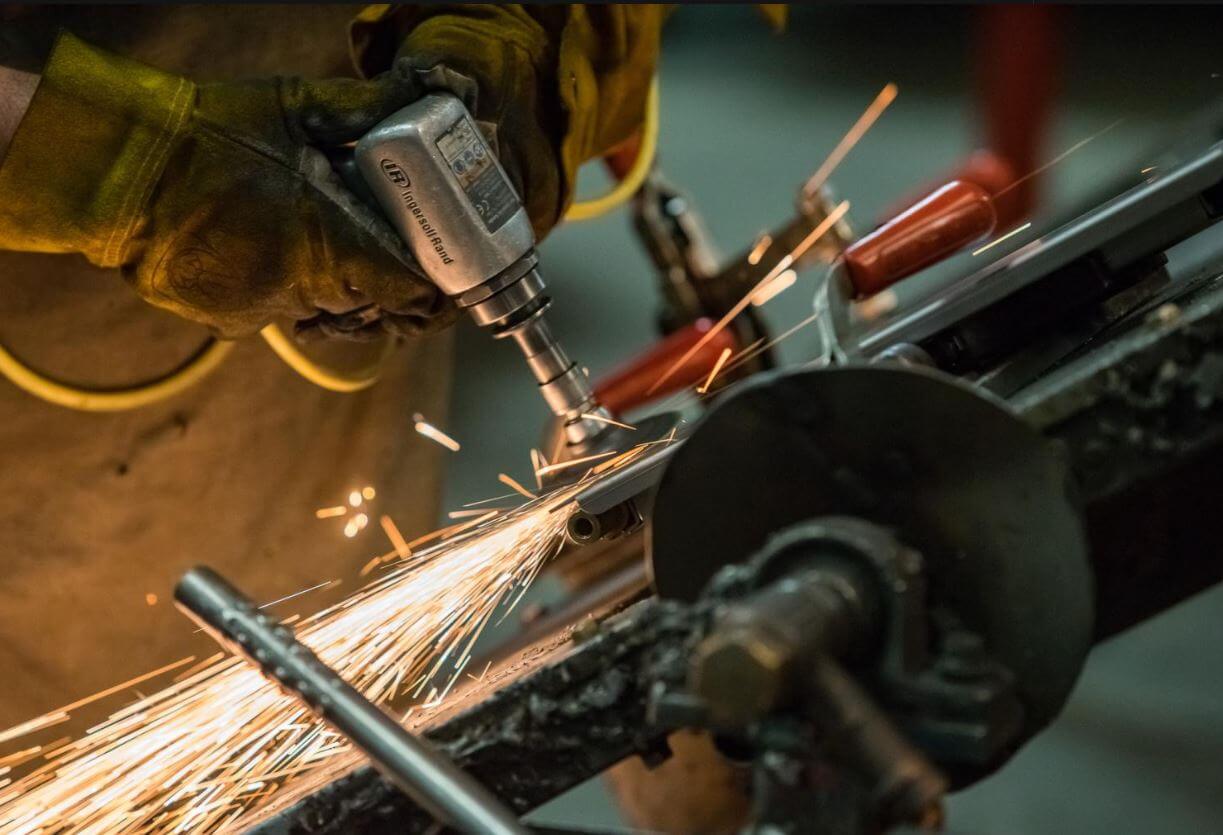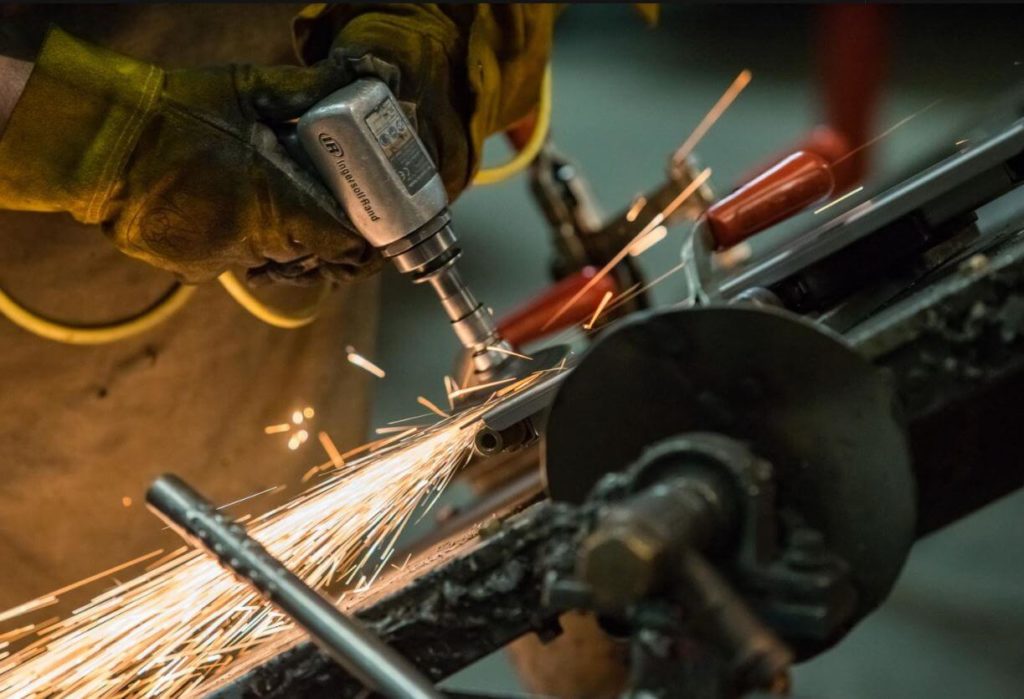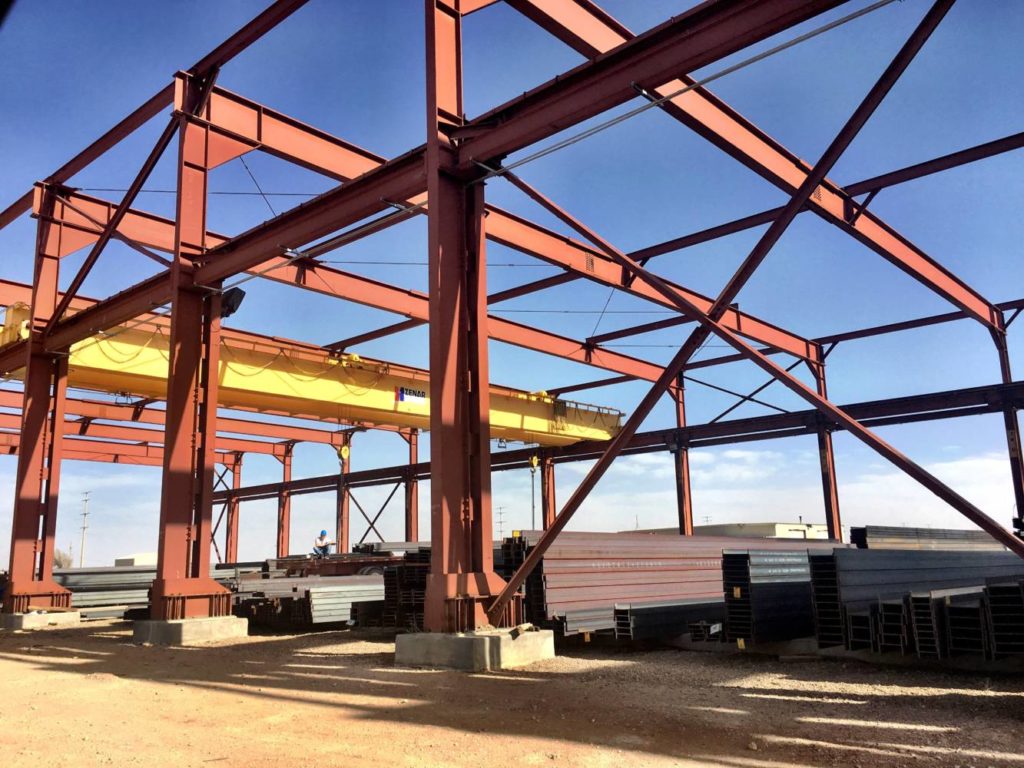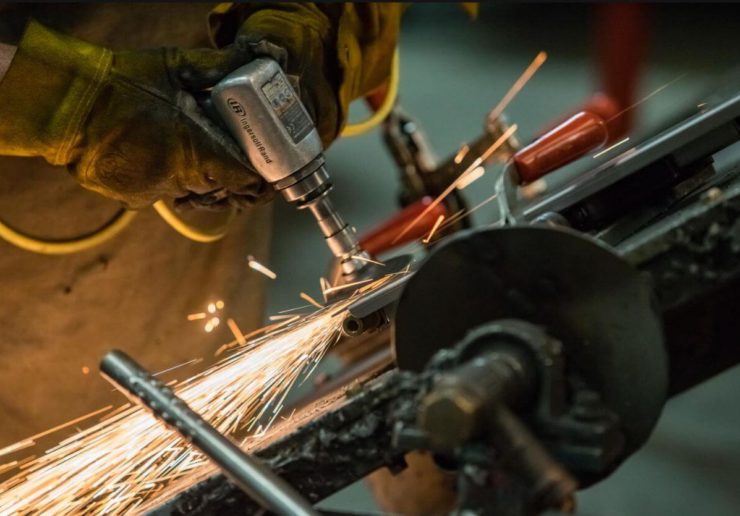
Metal fabrication is a critical process that transforms raw metal materials into finished products. It involves various techniques such as cutting, bending, welding, and assembling. In many industries, metal fabrication is integral to creating structures or components that meet specific design requirements.
From small parts to large structures, metal fabrication services are involved in the production of a wide range of products. Its versatility allows for custom-made solutions that cater to the unique needs of each project. Moreover, metal fabricated products are known for their strength, durability, and corrosion resistance.
We specialize in metal fabrication services that deliver exceptional quality and precision. Our team of skilled professionals across five facilities in Texas utilizes state-of-the-art equipment and advanced techniques to ensure every project is completed successfully. Download our line card today.
The practice of metal fabrication involves several processes, many of which are common in Texas. These processes play a vital role in transforming raw metal into various components and products. Here, we discuss some of the most popular metal fabrication processes in Texas:
Metal fabrication plays a crucial role in various industries across Texas. Here are some of the key sectors that benefit from our metal fabrication services:
Metal fabrication involves transforming raw materials into finished metal products. In this section, we will explore the types of metals commonly used in fabrication, including steel, aluminum, and stainless steel. We will also discuss the importance of choosing the right raw materials for specific projects and the benefits and considerations of various metal alloys.
Steel is one of the most widely used metals in fabrication due to its strength, durability, and versatility. It is commonly used in applications such as structural components, automotive parts, and machinery. Aluminum, on the other hand, is known for its lightweight nature and corrosion resistance, making it ideal for aerospace, automotive, and construction industries.
Stainless steel is a popular choice for fabrication projects that require resistance to corrosion, heat, and chemicals. It is commonly used in food processing equipment, medical devices, and architectural structures.
When selecting raw materials for a specific project, it is crucial to consider factors such as the desired strength, durability, and appearance of the finished product. Additionally, the operating environment, budget, and project requirements should be considered.
Various metal alloys offer unique benefits and considerations. For instance, carbon steel provides excellent strength but may be susceptible to corrosion. On the other hand, stainless steel alloys offer superior corrosion resistance but may be more expensive.
Welding is a critical aspect of metal fabrication that involves joining two or more metal pieces together. This technique is critical in various industries, including construction, automotive, aerospace, and manufacturing.
There are several different welding techniques commonly used in metal fabrication:
Each welding technique has its advantages and limitations. For instance, SMAW is versatile and can be used in various positions but requires frequent electrode changes. GMAW is quick and efficient but may produce more spatter. GTAW provides precise control and produces high-quality welds but is slower compared to other techniques.

Metal fabrication requires a range of equipment for shaping, joining, and finishing metal products. Here are some of the key types of equipment we use at Kloeckner Metals:
Kloeckner Metals has five facilities across Texas providing top-notch metal fabrication services. Our team of skilled professionals utilizes state-of-the-art equipment and advanced techniques to ensure every project is completed successfully. Whether you need custom metal parts or complex structures, we have the expertise to meet your specific requirements
Kloeckner Metals Amarillo is a 160,000 sq. ft. facility sitting on 60 acres and strategically located on 1-40 with BNSF and Union Pacific rail acess. Servicing Texas, Oklahoma, Kansas, Colorado, and New Mexico, the facility supplies and processes beams, angles, channels, flats, plate, sheet, rounds, squares, pipe, tube, rebar, bar grating, and expanded metal. Key equipment includes an Alltra burning system, Messer MPC 2000, and Messer EdgeMaster alongside vertical saws, miter saws, shears, press brakes, gantry drilling system, and punches.

Kloeckner Metals Houston – Almeda is a 190,000 sq. ft. facility located on 10 acres adjacent to the Port of Houston. The facility processes and distributes plate, tube, channels, flats, bars, pipes, beams, galvanized products, and cold finished products and services the Texas Gulf Coast region and the Calcasieu Parish area in Louisiana. Key equipment include two precision CNC burning machines plus band sawing and beam cambering. The branch is serviced by 12 overhead cranes.
Kloeckner Metals Houston – Mesa is an ISO 9001, 14001, and 45001 certified facility that operates out of a 240,000 climate-controlled warehouse. With two inside rail spurs and located adjacent to the Port of Houston, the Houston metal supplier is located in the hub of the North American energy and heavy manufacturing industries. Kloeckner Metals Houston-Mesa supplies HSLA coils and sheets, cold rolled and coated sheets, blanks, and slit coils. Key equipment includes a 72” Braner slitter and a 72” Red Bud multi-blanking line, plus a 24” mini blanking line and two additional 96” and 72” cut-to-length lines.
Kloeckner Metals Austin is located in Buda, Texas. It is an 85,000 sq. ft. facility that services Austin and San Antonio daily, the Waco area with 4 trucks/weekly, and the central Texas region with 9 trucks Monday through Friday. Products include square and rectangular tube, structural shapes, beams plates, channels, cold rolled material, grating and expanded metal, pipe, and round tubing. Equipment includes 3 saws and a 12” x 42” Alltra plate burning table.
Kloeckner Metals Dallas is a 187,800 sq. ft. facility with 32,000 sq. ft. outside crane service. The facility offers plate and sheet, pipe and tube, channels, flat bars, cold rolled & hold rolled rounds, and wide flange beams, and all material is stored indoors. Kloeckner Metals Dallas delivers daily to the Dallas Forth worth and surrounding areas, and includes rail service. Key equipment includes a 40’ x 80’ CNC beveling system with true hole technology, an Alltra oxy-fuel table, LT14 and LT8.10 tube lasers, a Haas VF 11-50 CNC machining center, a Haas VF8 CNC beveling table, 3 120-ton Iron Works, and 3 horizontal and vertical miter saws.
Technological advancements are shaping the future of the metal fabrication industry, making it more efficient, sustainable, and innovative. Automation, robotics, and artificial intelligence (AI) are transforming manufacturing processes, improving accuracy, speed, and productivity. In addition, sustainability and eco-friendly practices are becoming increasingly important in metal fabrication as the industry seeks to reduce waste, minimize pollution, and lower its carbon footprint.
Whether you require custom metal components or comprehensive fabrication services, we are committed to providing the highest quality products and services while prioritizing sustainability and innovation. Download our line card today.

Steel base plates are fundamental elements employed in various manufacturing...
The solar industry has undergone a significant transformation by incorporating...
The unprecedented pace of solar growth is challenging and reforming...

X
The Kloeckner Metals website uses modern technologies. Unfortunately, your browser doesn't support those technologies.
Download the latest version of one of these browsers to experience the site: